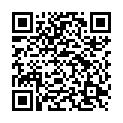|
|
|
| Module code: PIM-WI78 |
|
2V+2PA (4 hours per week) |
|
6 |
| Semester: 1 |
| Mandatory course: no |
Language of instruction:
German |
Assessment:
Project with final presentation
[updated 20.12.2017]
|
DFI-SQE Computer Science, Master, ASPO 01.10.2018
, semester 1, optional course, informatics specific
KI786 Computer Science and Communication Systems, Master, ASPO 01.04.2016
, semester 1, optional course, informatics specific
KIM-SQE (P221-0144) Computer Science and Communication Systems, Master, ASPO 01.10.2017
, semester 1, optional course, informatics specific
PIM-WI78 Applied Informatics, Master, ASPO 01.10.2011
, semester 1, optional course, informatics specific
PIM-SQE (P221-0144) Applied Informatics, Master, ASPO 01.10.2017
, semester 1, optional course, informatics specific
PIM-SQE (P221-0144) Applied Informatics, Master, SO 01.10.2026
, semester 1, optional course, informatics specific
|
60 class hours (= 45 clock hours) over a 15-week period.
The total student study time is 180 hours (equivalent to 6 ECTS credits).
There are therefore 135 hours available for class preparation and follow-up work and exam preparation.
|
Recommended prerequisites (modules):
None.
|
Recommended as prerequisite for:
|
Module coordinator:
Prof. Dr.-Ing. Martin Burger |
Lecturer: Prof. Dr.-Ing. Martin Burger
[updated 04.07.2017]
|
Learning outcomes:
In times of large IT projects on the one hand and agile software development (with shorter and shorter release cycles) on the other, the importance of software quality assurance increases.
_ After successfully completing this course, students will be able to define the most important terms and concepts in software quality engineering and explain them using examples.
_ They will know and understand the various concepts of static and dynamic test techniques and be able to apply them to actual problems.
_ Students will be able to differentiate between different types of tests and know how they are used in different test stages and how to integrate them into the test process.
_ Students will become familiar with the different requirements for quality assurance in classic and agile development models and how these can be met.
_ Students will understand how to use tools for support in different scenarios and types of tests (test organization, test automation, load and performance tests, etc.)
[updated 24.02.2018]
|
Module content:
1. Basics of software quality assurance and introduction to software testing
2. Basics of agility and agile testing
3. Statistic software quality measures and black box test design techniques
4. White box test design techniques and code-driven metrics
5. Test automation I (general introduction and use in the classic process model)
6. Test automation II (use in the agile process model)
7. Test management, management-driven metrics and test planning and _estimates
8. Tool support and non-functional tests I (usability, security, operational tests)
9. Non-functional tests II (load and performance tests)
10. Final exercise (group work)
[updated 24.02.2018]
|
Teaching methods/Media:
Slides -
The slides can be used as a script and will be made available to students. In addition, selected articles on the topics of the lecture will be recommended.
[updated 20.12.2017]
|
Recommended or required reading:
Andreas Spillner,Tilo Linz:
Basiswissen Softwaretest: Aus- und Weiterbildung zum Certified Tester - Foundation Level nach ISTQB-Standard (ISQL-Reihe), dPunkt Verlag
[updated 20.12.2017]
|
Module offered in:
WS 2018/19,
WS 2017/18
|


